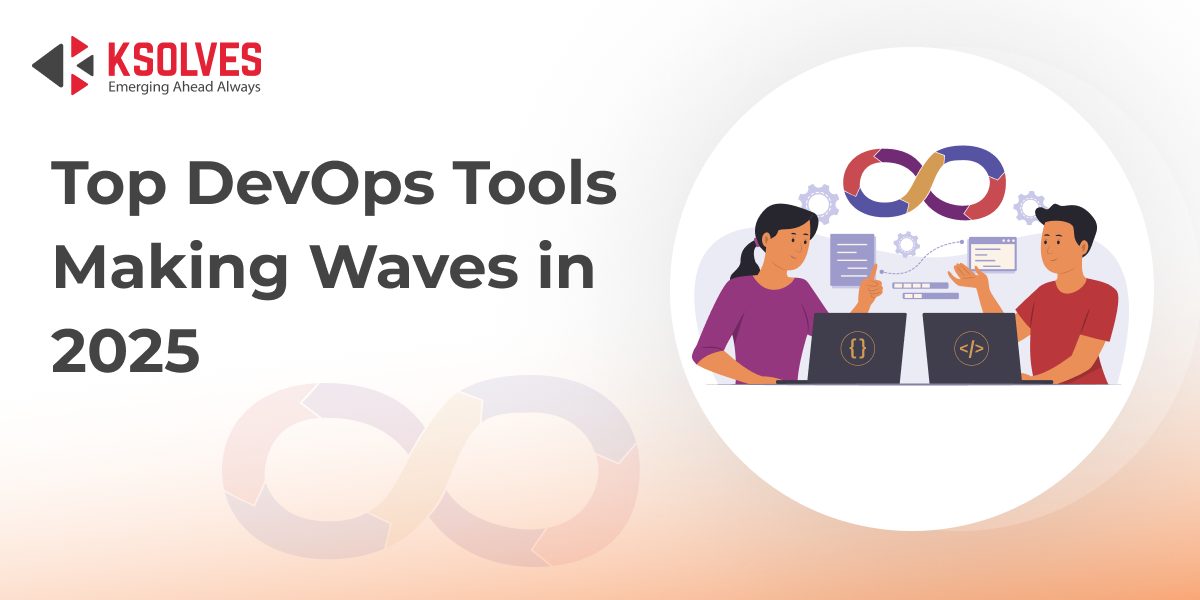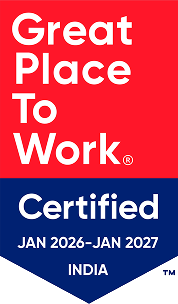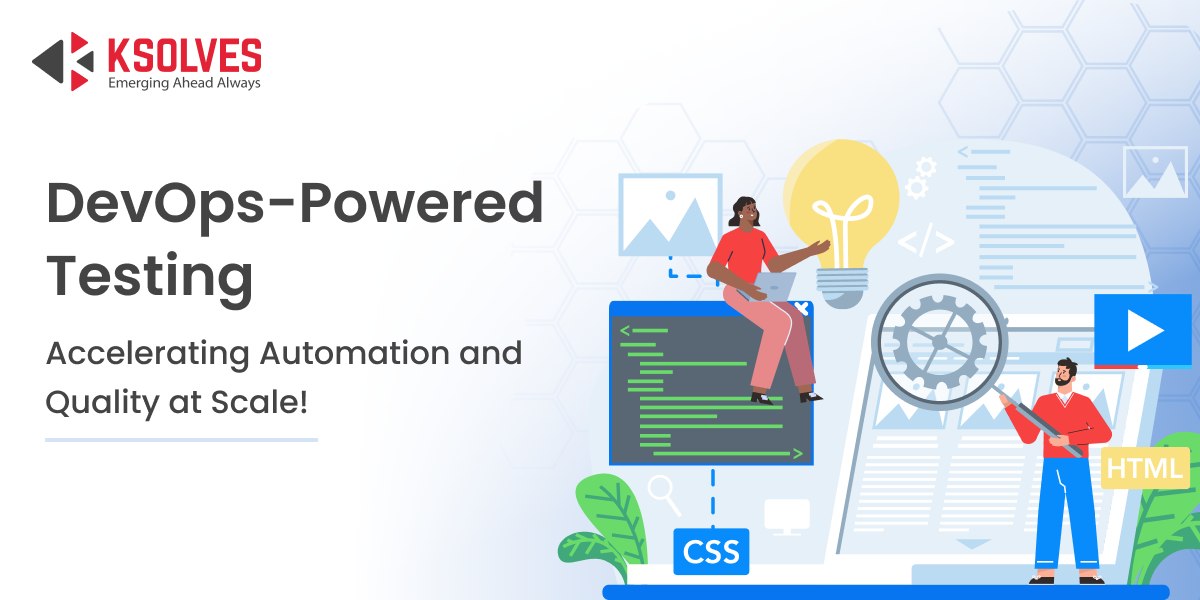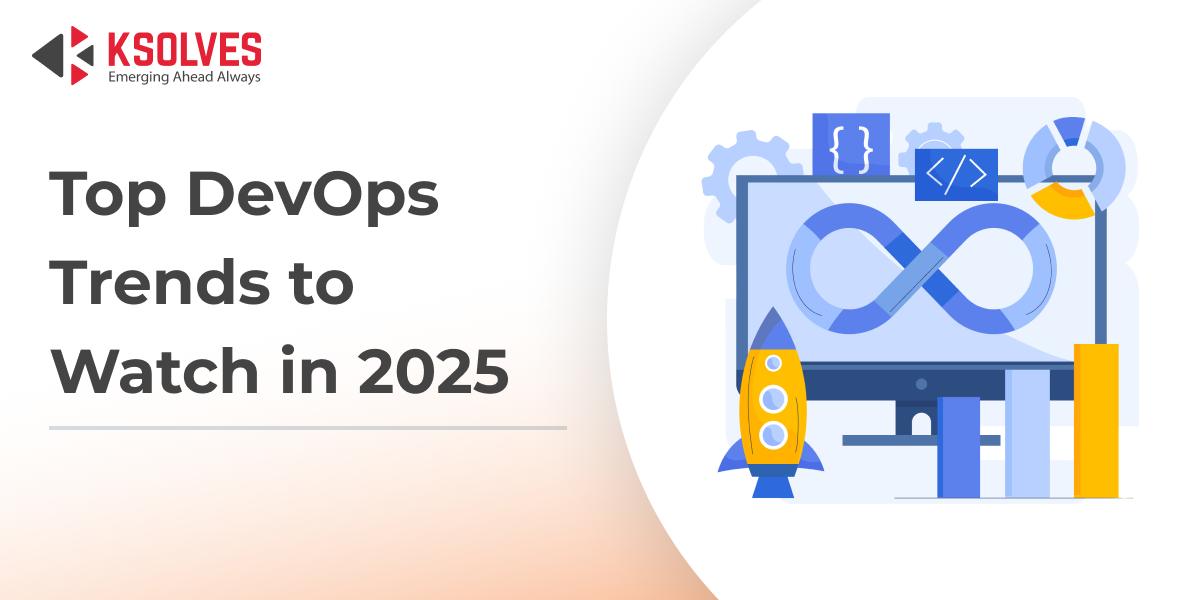Top DevOps Tools Making Waves in 2026
DevOps
5 MIN READ
January 7, 2026
![]()

When it comes to transformative technologies like Artificial Intelligence or Big Data, the spotlight is often on the end results—insights, automation, and innovation. But with DevOps, it’s not just about the outcome; it’s about the process. DevOps is a culture of collaboration between development and operations teams, streamlining workflows to accelerate delivery and improve efficiency.
And to drive this process? You need the right tools.
DevOps tools are the backbone of this methodology, powering everything from continuous integration and delivery to infrastructure automation and monitoring. With countless options in the market, choosing the right stack can be overwhelming. That’s why we’ve curated the top trending DevOps tools to watch in 2026, helping you stay ahead in the evolving tech landscape.
Before we dive in, let’s understand the meaning of DevOps tools.
What Are DevOps Tools?
Processes like building containers, orchestrations to microservice networking, CI/CD automation, configuration management, full-stack monitoring, and many more, require tools to get the job done. These tools are merely named DevOps Tools. Some of these tools include JAMStack, ELKStack, and Splunk, and the list can continue further.
Also Read: Leverage the Age of Digital Transformation with DevOps
So, let’s start with the top trending DevOps tools list to look out for in 2026.
Top Trending DevOps Tools List in 2026
Below is a curated list of the top trending DevOps tools in 2026 that are transforming how teams build, deploy, and manage applications.
-
Kubernetes
With rising demand since 2020, Kubernetes has secured its spot as one of the top DevOps tools. It excels in container orchestration, automating deployments, scaling, and maintaining containerized applications. Its robust feature set makes it a go-to choice for managing large-scale, dynamic environments.
-
AWS
Amazon Web Services (AWS), one of the best DevOps tools, offers a broad suite of flexible cloud services ideal for DevOps practices. Its key features include infrastructure management, code deployment, software release automation, and application monitoring. AWS’s scalability and speed significantly enhance delivery timelines, making it a reliable platform for modern DevOps pipelines.
-
Azure
When thinking of cloud-based DevOps tools, Azure often comes to mind alongside AWS—and for good reason. Azure provides features such as source control, work planning, CI/CD, manual testing, and other cloud-hosted services. Its integrated environment supports smooth DevOps workflows across various development stages.
-
ELK Stack
The ELK Stack—Elasticsearch, Logstash, and Kibana—is a powerful logging and analytics solution. Elasticsearch functions as a NoSQL database, Logstash handles data ingestion and transformation, and Kibana offers a rich visualization layer. Together, they provide end-to-end monitoring and analysis for DevOps environments.
-
Docker
A pioneer in containerization, Docker enables developers to build, package, and run applications in lightweight containers. It bundles everything required to run a program—libraries, binaries, and configuration files—ensuring consistency across environments. Its simplicity and portability make it a staple in agile development and DevOps workflows.
-
Git
Git is a distributed version control system that enables teams to track changes, collaborate efficiently, and manage source code. It supports pull requests, branching workflows, and accelerated release cycles. Git is foundational for any DevOps team practicing continuous integration and collaboration.
-
Jenkins
Jenkins is a widely-used open-source automation server written in Java. It facilitates continuous integration and testing, making it easy to detect code issues early. With support for 1000+ plugins, pipeline scripting, and various integration methods, Jenkins is central to many CI/CD pipelines.
-
Istio
Networking in microservices can be complex—Istio, a popular service mesh, simplifies it. It handles traffic management, security, observability, and policy enforcement. With increasing adoption, Istio plays a crucial role in improving microservices reliability and performance.
-
Prometheus
Prometheus is a powerful monitoring and alerting tool used widely in DevOps. It collects time-series metrics, supports flexible queries, and integrates with Grafana for visualization. It’s essential for system observability, real-time alerts, and proactive incident management.
-
Chef
Chef is a robust configuration management tool that turns infrastructure into code. As one of the leading DevOps tools, it supports platforms like FreeBSD, AIX, and RHEL/CentOS, and integrates well with cloud providers. Its strong community support and flexibility make it a preferred choice for infrastructure automation.
-
Ansible
Ansible simplifies automation by allowing infrastructure, applications, and network configurations to be defined through easy-to-write YAML playbooks. It uses a master-slave architecture with push configuration, making it efficient for managing deployments and environments.
-
Terraform
Terraform, developed by HashiCorp, is an Infrastructure-as-Code (IaC) tool used to provision and manage cloud infrastructure. Its versioning capabilities and declarative configuration language enable users to define and reproduce infrastructure safely and efficiently—like blueprinting for your cloud services.
-
Argo CD
If you’re diving into GitOps, Argo CD is a top-tier tool for continuous delivery. It uses Git as the single source of truth for deployment definitions, making the process fully declarative and auditable. With built-in rollback capabilities and seamless Kubernetes-native integration, Argo CD simplifies application lifecycle management while ensuring consistency across environments.
-
Flux CD
Flux CD is another GitOps-powered tool that’s gaining traction for Kubernetes environments. It enables secure and automated delivery by syncing changes from your Git repository to your cluster in real-time. With features like multi-tenancy support and progressive delivery, Flux CD brings stability, speed, and safety to modern DevOps workflows.
-
Backstage by Spotify
As platform engineering becomes essential, Backstage stands out as an internal developer portal (IDP). It provides a centralized UI for managing software catalogs, services, documentation, and CI/CD pipelines. Built with a rich plugin ecosystem, Backstage enhances developer productivity by streamlining DevOps workflows and microservice management.
-
Dagger
Dagger is reimagining CI/CD with programmable pipelines powered by CUE (Configuration, Unification, Execution). Designed for cloud-native environments, it offers lightweight and reusable pipelines as code, making DevOps automation more flexible and developer-friendly. It’s an ideal choice for teams that value agility and modular CI/CD practices.
-
FireHydrant
FireHydrant, one of the top DevOps tools, is purpose-built for Site Reliability Engineering (SRE) teams focused on managing and automating incident response. From real-time status pages and service catalogs to dynamic runbooks, it empowers teams to respond faster, coordinate better, and reduce downtime. It’s a go-to solution for maturing SRE practices.
-
Testkube
For Kubernetes-native testing, Testkube brings powerful orchestration capabilities directly into your CI/CD pipeline. It supports running tests in any framework across various environments, helping teams test earlier and more efficiently. Its native integration with Kubernetes makes it perfect for validating cloud-native applications.
All the tools mentioned above are considered among the best DevOps tools to use in 2026. However, selecting the right tool depends entirely on the specific needs and requirements of the organization. In such cases, DevOps consulting services can guide you in making the right choice and implementing it effectively.
Must Read: Top DevOps Principles For a Successful DevOps Culture
Why Utilization of DevOps Tools Necessary?
The adoption of DevOps tools has become essential for modern software development, and here’s why:
- Automation: DevOps tools automate repetitive and manual tasks throughout the software development lifecycle, reducing errors and improving efficiency.
- Enhanced Collaboration: These tools foster better collaboration and communication among cross-functional teams, including developers, testers, operations, and other stakeholders.
- Continuous Integration and Delivery (CI/CD): DevOps tools support CI/CD pipelines, enabling faster and more reliable software releases without compromising quality.
- Efficient Infrastructure Management: Tools like containerization platforms and Infrastructure as Code (IaC) solutions help manage and scale infrastructure seamlessly.
- Faster Time to Market: By combining automation, collaboration, and CI/CD practices, DevOps tools significantly reduce development cycles and speed up product delivery.
In short, utilizing DevOps tools is crucial for streamlining workflows, enhancing team synergy, automating key processes, and delivering high-quality software at a faster pace.
In The End
These DevOps tools play a vital role in automating and executing a successful DevOps strategy for companies worldwide. The unique capabilities of each tool are what earned them a place on this list. However, building a truly robust DevOps pipeline often requires a combination of tools—and the expertise to use them effectively.
That’s where Ksolves comes in. As a leading DevOps consulting company in India and the USA, Ksolves offers end-to-end services tailored to your business needs. Whether you’re starting from scratch or need custom-built solutions, our experts provide full support and a clear roadmap to help you implement DevOps at a sustainable and scalable pace.
![]()








Author
Share with